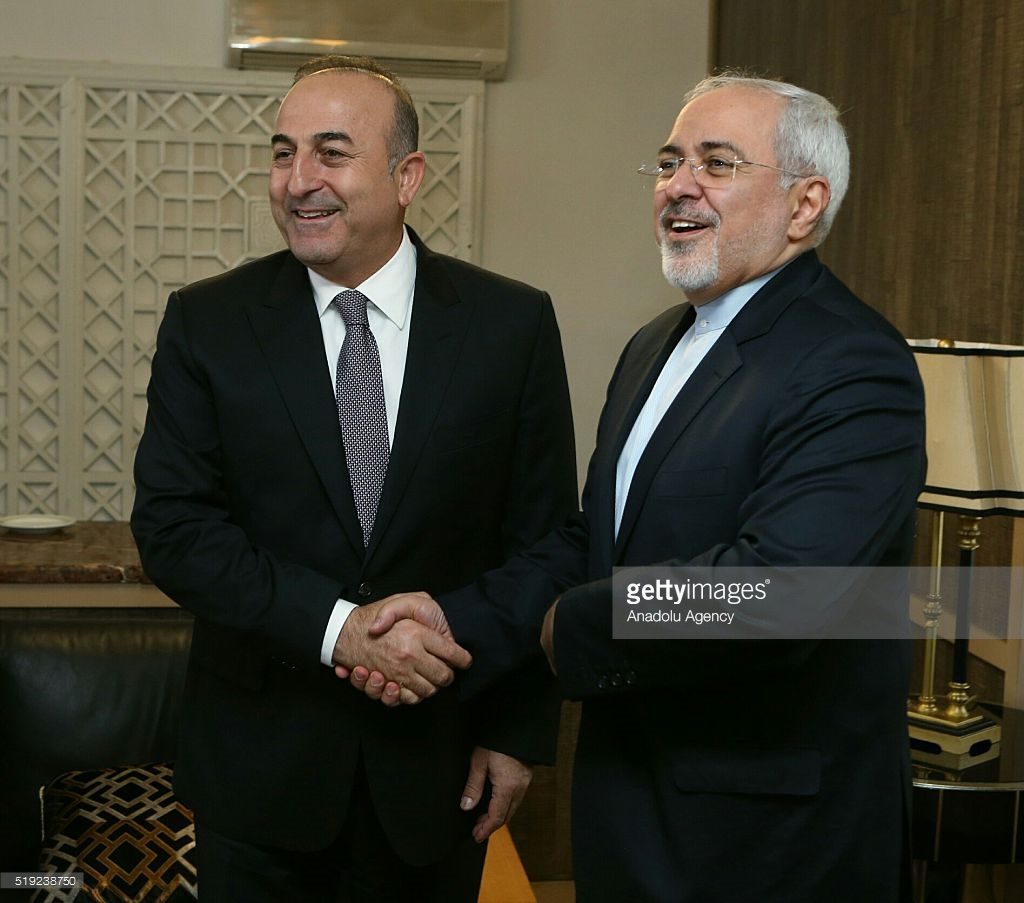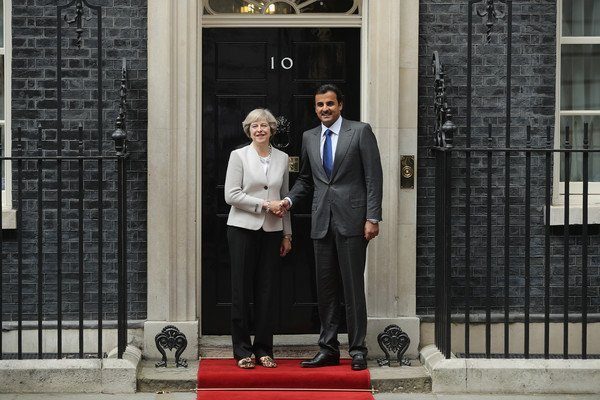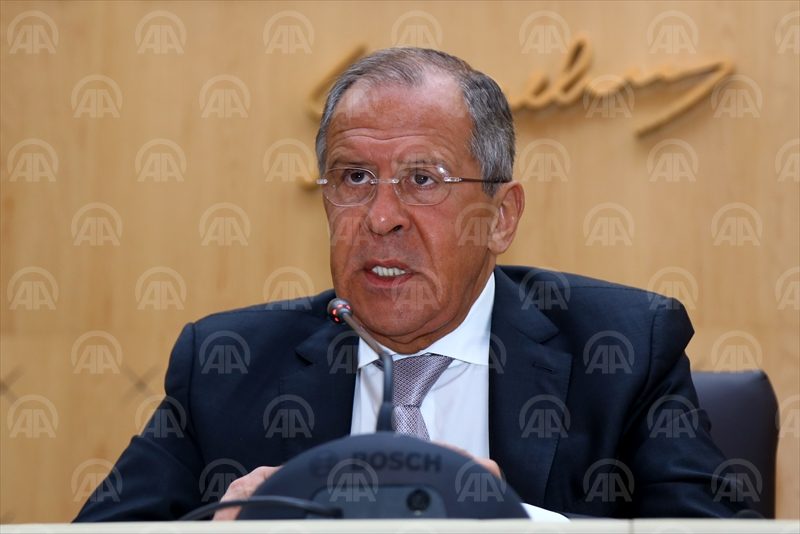
 BY: Yasin Aktay*
BY: Yasin Aktay*
We refer to them as parties, but as we mentioned previously on this matter, there is an asymmetrical balance between them. It is clear there is a sanction that a few countries have gathered want to apply against a country. It is yet to be understood why these four countries have collaborated and are administering these sanctions against Qatar.
Turkey, who has very favorable relations with both Qatar and Saudi Arabia, initially demonstrated the necessary reactions towards these steps, which could tantamount to the end of a country’s sovereignty, and stood up against such an extrajudicial execution attempt by the Gulf Cooperation Council member countries towards one of its own.
Some impertinent individuals have dared, against this attempt by Turkey, to question how Turkey dare meddle in a problem between Gulf countries.
Primarily, the matter is not a dispute which involves Gulf countries alone, it effects everybody. Secondly, those who are perturbed by the fact that Turkey is not a gulf country have no hesitation in considering the statements made by the U.S., who has come to the region from 5,000 miles away, like a revelation and an order.
Third, Egypt is also included among these four countries and is not a Gulf country. What do the African countries, having difficulty severing Mauritania and Yemen’s ties with Qatar, have to do with the Gulf? Is Turkey, who wants the benefit of all sides, who wants peace not war, who wants resolutions not crisis, who wants dialogue not embargo, the only one who is disturbed?
Of course, Turkey took action based on the theory that if there are disputing sides then the dispute needs to be solved through dialogue. In response, some have chosen to further deepen the crisis by articulating that this is not impartiality but instead siding with Qatar, to stand alongside Qatar against the other countries.
To be honest, Qatar is facing a case of “extrajudicial execution.” By positioning itself against this case, Turkey has first and foremost stood against an error that would be impossible to compensate for, then invited those implementing these notions to present their reasons for this.
If it be assumed that any aberration can be committed, that we can to it to whomever can be overpowered and that nobody can stop us, then we need to remind ourselves that such acts neither comply with Islamic justice nor the order of the world no matter how distorted it may be.
Just take a look, after the crisis reached such an extent, even the U.S. started to make statements contradicting that of President Donald Trump, who provoked the group the most against Qatar.
Finally, the Department of State’s spokesperson Heather Nauert said, as time passes from the start of the diplomatic crisis between Qatar and its neighboring countries, the suspicions on Saudi Arabia and the United Arab Emirates’ (UAE) actions are further increasing. Going on to say, “At the point we’ve reached, we are face to face with a simple question: Are the steps that are being taken really based on concerns relating to the support, they claim, Qatar gives to terrorism, or to the long-term complaints between Gulf countries?” She went as far as adding that the coalition against Qatar was unconvincing.
In reality, just as the reasons the group explained, due to the pressures that followed, the justification for the embargo that first started with sanctions against Qatar are in no way convincing, they are reasons that will push the entire group, primarily Saudi Arabia, into a very arduous position. Just as the U.S., who lit the green light when Saddam Hussein was about to invade Kuwait, took the role of the savior against this invasion as soon as it happened. How many more times are these Arab countries going to fall for the same trick?
When we asserted that this course of events will lead the Arab world to a great threat we were not defending Qatar only. While all these countries are struggling with this problem, occurrences continue in Syria, Libya, Yemen and Iraq. When Saudi Arabia, Turkey and the Gulf states should be in a natural cooperation with these countries are wasting their energy with this problem. While they waste their energy with this problem, terrorist organizations in the region and the forces behind them are progressing. The chaotic atmosphere which will lead the region to become shredded into pieces and every country will reach a state beyond management is becoming well established. There is great benefit in everyone coming to their senses and contemplating to whom this chaotic atmosphere poses risks to and what its consequences may be.
As of yesterday, the demands of the coalition against Qatar have finally become clear. The previous demands and list of terrorists submitted was a complete fiasco and the U.N. had already declared it would not pay attention to it. It was a list prepared so arbitrarily as to label the 91-year-old great Islamic scholar Yousef al-Qaradawi as a terrorist and that would, as a result, put those who prepared the list into a difficult position.
The demands released yesterday, was, to be honest, a list which completely disappointed the expectation that there might be a turn toward rationality and common sense. Just as the same terror accusations were repeated without any display of proof, it is a list like a decree of surrender dictated by the army that was victorious against its rival. Where they find the courage and right to present such a list is a different topic. It includes the closing down of Al Jazeera, a broadcasting channel that is the pride of the Muslim world, as well as the closing down of Turkey’s military base.
The UAE, who is currently meddling in the affairs of all countries, including Turkey, in the Muslim world, supporting the coup processes there with its own media, its money, arms and agents, calling Qatar to stop intervening in the internal affairs of other countries, is an explicit example of black humour.
It is clear as day that the same UAE , through its media and money, supported the Gezi Park events, the Dec. 17 and Dec. 25, 2013 coup attempt, the July 15, 2016 Fetullahist Terror Organization (FETÖ) coup and all anti-democracy actions in Turkey, also audaciously demanded that Turkey’s base in Qatar be closed down.
The same boldness is apparent wherever there is an instability, coup or terrorism in the Muslim world today and, as a matter of fact, it considers itself authorized in the definition and elimination of terrorism.
No matter what occurs, the Muslim world now needs to face this boldness that disregards law and justice.
*Yasin Aktay is a member of the Turkish parliament and a leading figure of the ruling Justice and Development (AK Party) in Turkey.
(Published in Yeni Şafak Turkısh newspaper on June 24, 2017)



